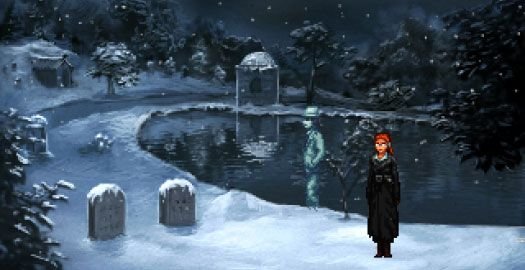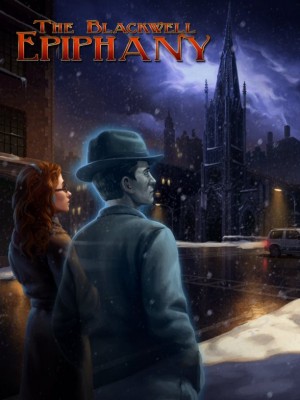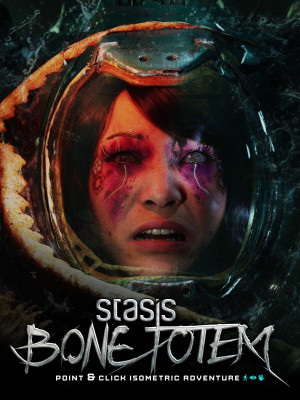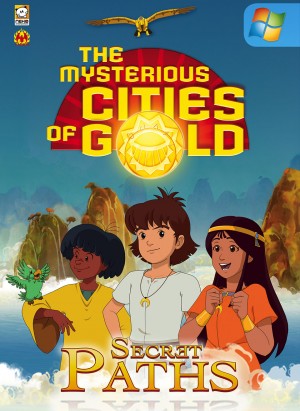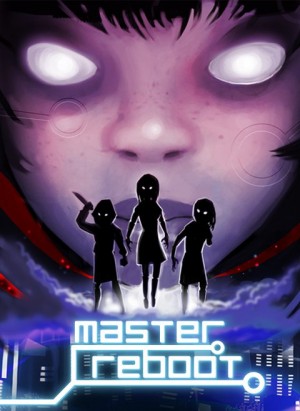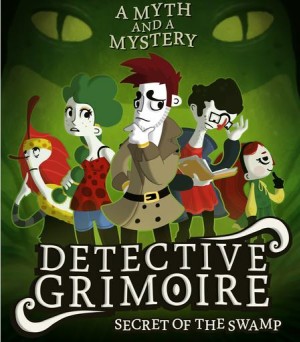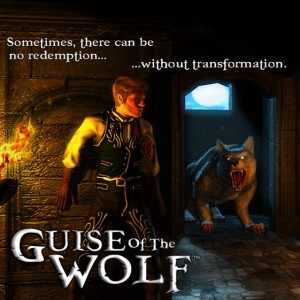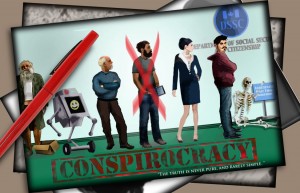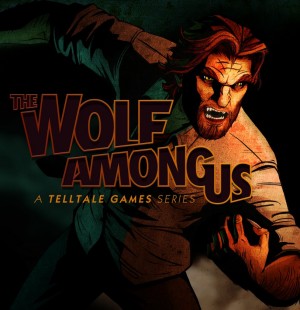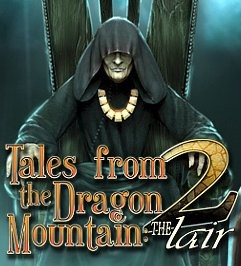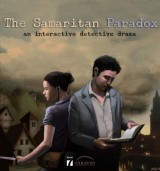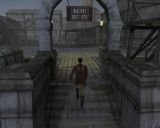Review for The Blackwell Epiphany
Game information
Adventure Gamers Awards
"Get through the light, quick!" are not words you traditionally associate with a ghost story, but then death is usually the end of one’s problems, not the start. In The Blackwell Epiphany, New York City's premier paranormal detective duo have to contend with someone (or something) who's not just killing people, but destroying their very souls. What follows is a high-stakes game of cat-and-mouse in a world where desperate people seek help in preserving their spirits for the afterlife. The Blackwell games have always been known for their storytelling, but this one really ups the ante and delivers a gripping and emotionally-charged finale that sends the series out on a high.
For those of you who haven't been following along since Rosa and Joey's debut in The Blackwell Legacy, here's a brief overview. Rosa, thanks to a rare quirk of nature, is a Bestower, able to see and help restless spirits move on to the next world with the aid of her ghostly Jazz-age sidekick, Joey. It's a role that has been passed down through the Blackwell women: first her grandmother Patricia, then her aunt Lauren and now Rosa. It hasn't tended to end well, though, as both her grandmother and her aunt eventually suffered nervous breakdowns.
Rosa and Joey make a good double act. Rosa can do all your typical adventurer stuff, talking to people and picking up anything that's not nailed down, but she's stymied by locked doors and ghosts can be reluctant to talk to her. Joey, on the other hand, can't touch things and can only interact with the world by blowing on it (conjuring up a light breeze), but he can drift through walls and doors like they aren't even there. So long as he doesn't stray too far from Rosa, that is; they’re stuck with each other, much to their mutual frustration.
Initially reluctant, over time Rosa has come to, if not exactly rejoice in, then at least grudgingly accept her role as Bestower. What started out as an annoyance has, over time, come to be her calling. She helps ghosts to move on because "it's what we do." She's even become a (strictly unofficial) police consultant, helping Detective Sam Durkin with anything weird or spooky that comes his way.
As the final game opens, we find Rosa and Joey on just such an assignment, out on a bitterly cold and snowy New York night with only a cup of coffee for company. The police have raided and shut down a local crack house, but a young actress was found dead and (as it turns out) she's still haunting the building, unaware that anything's wrong. (This is a familiar Blackwell theme: the ghosts they encounter are usually unaware of the fact, and have to be made to remember their deaths before they can move on.)
Soon after, Joey and Rosa have barely made it back onto the street before a masked gunman appears. Is he going to shoot her? As it turns out, no, but without spoiling the outcome, what happens instead is even more disturbing. Deeply shocked, Rosa vows to get to the bottom of it, but all she's got to go on is an unidentified body and the mysterious final words of a dying man. Even her friend Detective Durkin has clammed up, on orders from the top.
This is confident storytelling, and really shows how far writer Dave Gilbert has come since Legacy debuted with an officious stand-in doorman who wouldn't let you back into your apartment. Indeed, the early part of Epiphany in particular is very well put-together: the initial scenes at the crack house, like the pre-title vignette in many Bond films, do a great job of setting the stage and introducing you both to Rosa and Joey and the game's controls. Then, just as you're congratulating yourself on a job well done, the main plot kicks off with a bang and shakes the comfortable certainty of long-time players. Nothing and no-one is safe anymore.
For about the first half of the game, this confidence continues as we're drawn deeper into the case and find out more about the mysterious Grace Group that's helping people to find their true purpose in life, but may also be destroying them in the process. It all leads up to a genuinely powerful moment that leaves Rosa standing over a dead body with the police breaking down the door. Unfortunately, having worked so hard to build up a sense of tension, threat and urgency, the game suddenly lets all the air out of the tires. It's like one of those Saturday morning serials where every episode ends on an apparently impossible cliffhanger with the hero plunging to his death, only to start the next episode with a shot of him diving aside at the last moment and carrying on with his day. The shift is similarly anticlimactic here; all the suspense evaporates and you're suddenly back to your day-to-day ghosthunting, with the wider mystery taking a backseat for a while.
At this point, you're given two more essentially self-contained cases to investigate before the main plotline swings back into action again. It's a frustrating design choice, as it really bogs down the pace of the game for a while. These are far from being dull fillers, though: considered by themselves, they're delicate little human dramas that touch on some fairly deep themes. Gilbert has a great eye for the everyday dramas of life and many of his characters are memorable. From the TV news anchor desperate to leave her past behind to the brother and sister striving to deal with childhood abuse, these feel like real people, but it's all done with a light touch that stops the game from feeling preachy or hard going. The only problem is that he can struggle a bit with the bigger picture, the overarching story that knits all the smaller ones together. After waiting so long even to introduce them, then focusing on them to the exclusion of all else, it takes quite a while for the momentum to start building again and much of the early tension is wasted.
Unfortunately, too, when the revelation of the big bad does finally arrive, it comes totally out of left field. The justification makes perfect sense, but there's just no way to see it coming, even in retrospect. There are also a couple of pretty significant plot threads that, although tied up, don't really get the airtime I felt they merited. They're not exactly afterthoughts, but they feel somewhat dutiful, like they had to be included despite the fact that they didn't really have any place in the story as such. We finally discover the origins of not one but two of the series’ most prominent characters, and learn a little more about a shadowy organisation that is the antithesis of everything Rosa and Joey stand for. In the case of the latter, it's really too bad that it wasn’t integrated further into the storyline, which could have made for a much more satisfying dynamic.
If all that sounds like pretty damning criticism, bear in mind that I'm judging it by the high standards established in the first act of the game. The second act is still very good, it's just that the pace is a little off, the urgency suddenly removed, and the potential was there for more twists and turns. What we actually get feels comparatively small-scale, but then the Blackwell series has always been focused on human stories rather than grand conspiracies. The last act, when it comes, abruptly kicks things back into high gear and goes all out for the grand finale, providing an extremely satisfying end. If you're a regular, the last scene in particular is just perfect. Seeing it, you realise it couldn't have ended any other way and I needed to take a moment of quiet reflection as the end credits rolled before I could pull myself together.
Graphically and aurally, Epiphany represents another high point for Wadjet Eye. Although they have all featured retro art, each Blackwell game has had its own visual style, some of which have worked better than others, but Epiphany is just beautiful. Yes, it may have a limited number of pixels to work with, and this kind of ‘90s-era look isn't for everyone, but I've never seen it done better: streets glisten wetly, windows glow invitingly, and you can virtually feel the dark and the cold seeping out of the screen. Listening to the artist's commentary, it's clear that particular care went into the lighting, whether the warm glow of the streetlamps and windows, the cool institutional blues of the police station, or the green glow of the city skyline. It's a wonderfully atmospheric game.
The environments have a lot more life to them this time, too. Heavy snow swirls around you whenever you're outside, and even in the indoor scenes you can see it blowing against the windows. There are little touches, too, like a mouse scuttling across the floor of the crack house, flickering candles in the church, and ripples on a pond that help to bring the world alive.
Voice work has always been a Wadjet Eye strength, and it continues to be so here. All the main actors reprise their roles, leading to a feeling of comfortable familiarity. Rosa and Joey, in particular, banter like an old married couple. Special praise must also go to the young actress that plays Kendra Haskins: the little girl is "ten, maybe eleven" and so is the actress, but she gives a very poised performance.
The smoky, mournful saxophone themes are similarly well done. Elements of the score will feel familiar to series regulars, but this only helps to bring a feeling of cohesiveness and continuity.
The interface is as simple and intuitive as ever: right-click to examine, left-click to interact. A menu bar that drops down from the top of the screen shows your inventory (or list of powers, in the case of Joey), gives access to your "MyPhone" and allows you to switch characters. (This can also be done with the tab key.) Rosa also has a notebook (okay, cellphone note app) of people, places and concepts, and as well as asking people about them, she can also combine them to generate new insights. This has been a distinctive feature of all but one of the Blackwell games, and it's used well here.
Rosa's MyPhone has also received an upgrade or two this time around: as well as keeping notes, handling email and doing "Oogle" searches, it can download files from websites, view photos stored on a flash drive, and even install new apps.
All these features add welcome variety to the puzzles on offer, over and above the usual adventuring fare of inventory and dialogue obstacles. The puzzles in general feel nicely integrated into the story, and usually manage to be interesting without being excessively difficult. Joey's abilities can feel a bit limited at times, and a few puzzles seem contrived (such as finding a key left by a very erudite drug addict at the beginning of the game), but these are the exceptions.
As solid as the gameplay is, the story is clearly the main draw here. If you really want to play Epiphany as a standalone game, you just about can – it drops enough hints about what's gone on before that you can follow along – but I'd really recommend against it. Much of what happens in the latter stages of the game in particular is about tying off long-running threads, and you'll miss out on a lot of the emotional impact if you come in cold. Blackwell is a series best experienced in order. Epiphany is Rosa and Joey's longest and best outing by a fair margin, serving to highlight how far Wadjet Eye has come since the early days in terms of storytelling, graphics and puzzle construction; the series really feels like it has grown into itself. It's sad that it has had to come to an end, but it has gone out in style.
So goodbye, Rosa Blackwell and Joey Mallone. It's been a pleasure and a privilege to know you and share in your adventures these last eight years. You've taken a few unsteady steps along the way, but your heart has always been in the right place and we've come to love you for it. Could this series finale have turned out better? A little, perhaps, but it's still the best yet. If, like me, you've been there all the way, you owe it to yourself to complete the journey. If not, this may well be the game that finally inspires you to start. Even if retro adventures really aren't your thing, in The Blackwell Epiphany you'll be in for not just a ghost story but a charming and poignant human drama with a dash of nostalgia and a full measure of genuine warmth.
WHERE CAN I DOWNLOAD The Blackwell Epiphany
The Blackwell Epiphany is available at:
- GOG -70%




